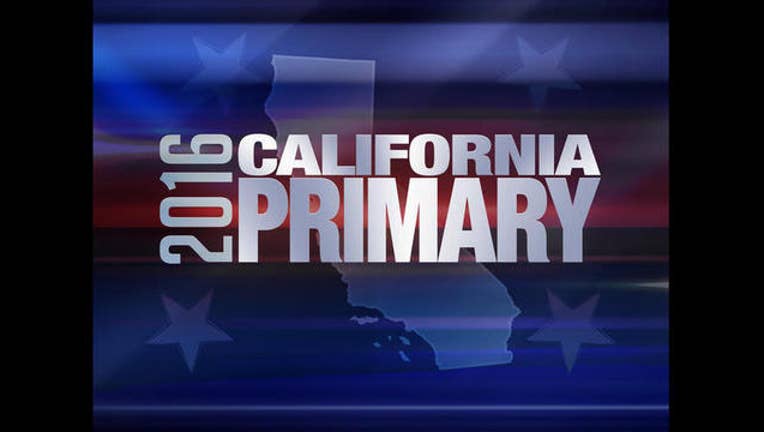California voters could make historic mark Tuesday

LOS ANGELES (AP) — With a final blitz of TV ads and hand-shaking, Democratic presidential rivals Hillary Clinton and Bernie Sanders headed toward a potentially historic election in California, while for the first time two Democratic women appeared positioned for a November showdown for a U.S. Senate seat.
Sanders capped his long-running California swing with stops Monday in liberal bastions around San Francisco, including a get-out-the-vote rally with rocker Dave Matthews. On Tuesday, he's planning an election night event in Santa Monica.
Clinton, tantalizingly close to seizing the Democratic Party nomination, cautioned that "it's not over until it's over." But she told reporters in Compton that "having a woman president will make a great statement, a historic statement about what kind of country we are, about what we stand for."
The former first lady is hoping a win in California, where she carried the 2008 presidential primary over then-Sen. Barack Obama, would be a capstone to a history-making candidacy.
Sanders, meanwhile, has been furiously campaigning across the state for an upset that he hopes will strengthen his claim that he is the party's best candidate to face Donald Trump in November.
In the race to replace U.S. Sen. Barbara Boxer, Attorney General Kamala Harris and Rep. Loretta Sanchez of Orange County, both Democrats, appear headed toward a 1-2 finish Tuesday that would send them to a November runoff under California's unusual election rules. Recent polling shows little-known Republican candidates lagging in single digits.
The 34 Senate candidates will appear on a single ballot, and voters can choose any candidate, regardless of party. But only two — the top vote-getters — will advance to the November election.
If the trend holds, it would be the first time since voters in the state starting electing senators a century ago that a Republican has not appeared on a California general election ballot for U.S. Senate. That would underscore the continued withering of California's GOP, which accounts for only 27 percent of registered voters.
Trump, the presumptive Republican nominee, is essentially running against himself at a time when he has been trying to unite a splintered Republican Party behind his candidacy.
The names of Ted Cruz and John Kasich, his last rivals for the nomination before they dropped out, are among those that remain on the ballot. Trump could face questions about his strength unless he secures an impressive margin of victory while driving up strong Republican turnout.
Another measuring stick: most Republican delegates are awarded by the outcome in each of the state's 53 congressional districts. Trump, as the presumptive nominee, would be expected to win them all.
In the state Legislature, Republicans are trying to prevent Democrats from gaining a two-thirds majority in both chambers, which would give the party a virtual lock on political power. Democrats face the prospect of several same-party runoffs that have attracted millions of dollars in outside spending.
The state this year has seen a surge in voter registration among younger people and Hispanics, most of whom registered as permanent vote-by-mail voters. However, that registration spike is not showing up in vote-by-mail returns received so far, said Paul Mitchell of research firm Political Data Inc.
"I think that could be a big story coming out of the election," Mitchell said in an email. "We had this big, statewide, cathartic rush to register to vote, but when the ballots were sent and Election Day came, was it just the same likely voters — whiter, older, homeowners — who participated?"

